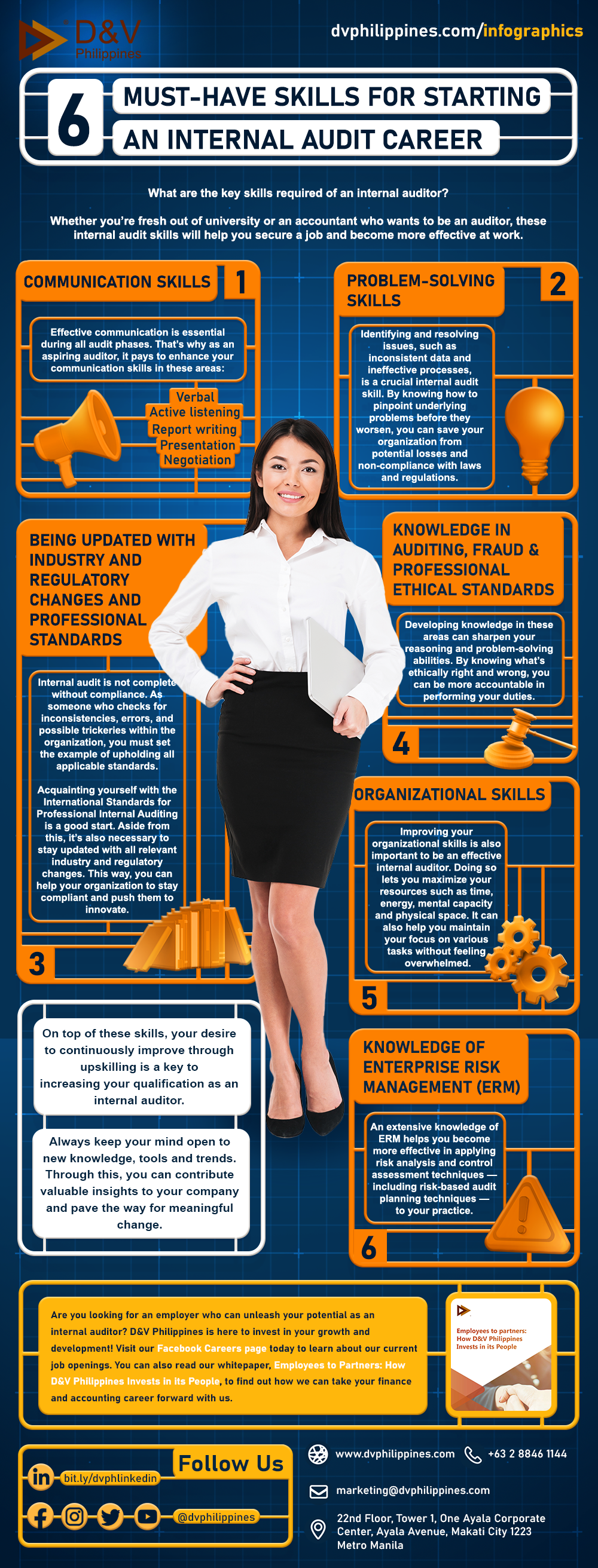6 Must-Have Skills for Starting an Internal Audit Career
What are the key skills required of an internal auditor?
Whether you’re fresh out of university or an accountant who wants to be an auditor, these internal audit skills will help you secure a job and become more effective at work.

1. Communication skills
Effective communication is essential during all audit phases. That’s why as an aspiring auditor, it pays to enhance your communication skills in these areas:
- Verbal
- Active listening
- Report writing
- Presentation
- Negotiation
2. Problem-solving skills
Identifying and resolving issues, such as inconsistent data and ineffective processes, is a crucial internal audit skill. By knowing how to pinpoint underlying problems before they worsen, you can save your organization from potential losses and non-compliance with laws and regulations.
3. Being updated with industry and regulatory changes and professional standards
Internal audit is not complete without compliance. As someone who checks for inconsistencies, errors, and possible trickeries within the organization, you must set the example of upholding all applicable standards.
Acquainting yourself with the International Standards for Professional Internal Auditing is a good start. Aside from this, it’s also necessary to stay updated with all relevant industry and regulatory changes. This way, you can help your organization to stay compliant and push them to innovate.
4. Knowledge in auditing, fraud and professional ethical standards
Developing knowledge in these areas can sharpen your reasoning and problem-solving abilities. By knowing what’s ethically right and wrong, you can be more accountable in performing your duties.
5. Knowledge of enterprise risk management (ERM)
An extensive knowledge of ERM helps you become more effective in applying risk analysis and control assessment techniques — including risk-based audit planning techniques — to your practice.
6. Organizational skills
Improving your organizational skills is also important to be an effective internal auditor. Doing so lets you maximize your resources such as time, energy, mental capacity and physical space. It can also help you maintain your focus on various tasks without feeling overwhelmed.
On top of these skills, your desire to continuously improve through upskilling is a key to increasing your qualification as an internal auditor.
Always keep your mind open to new knowledge, tools and trends. Through this, you can contribute valuable insights to your company and pave the way for meaningful change.
Are you looking for an employer who can unleash your potential as an internal auditor? D&V Philippines is here to invest in your growth and development! Visit our Facebook Careers page today to learn about our current job openings. You can also read our whitepaper, Employees to Partners: How D&V Philippines Invests in its People, to find out how we can take your finance and accounting career forward with us.




